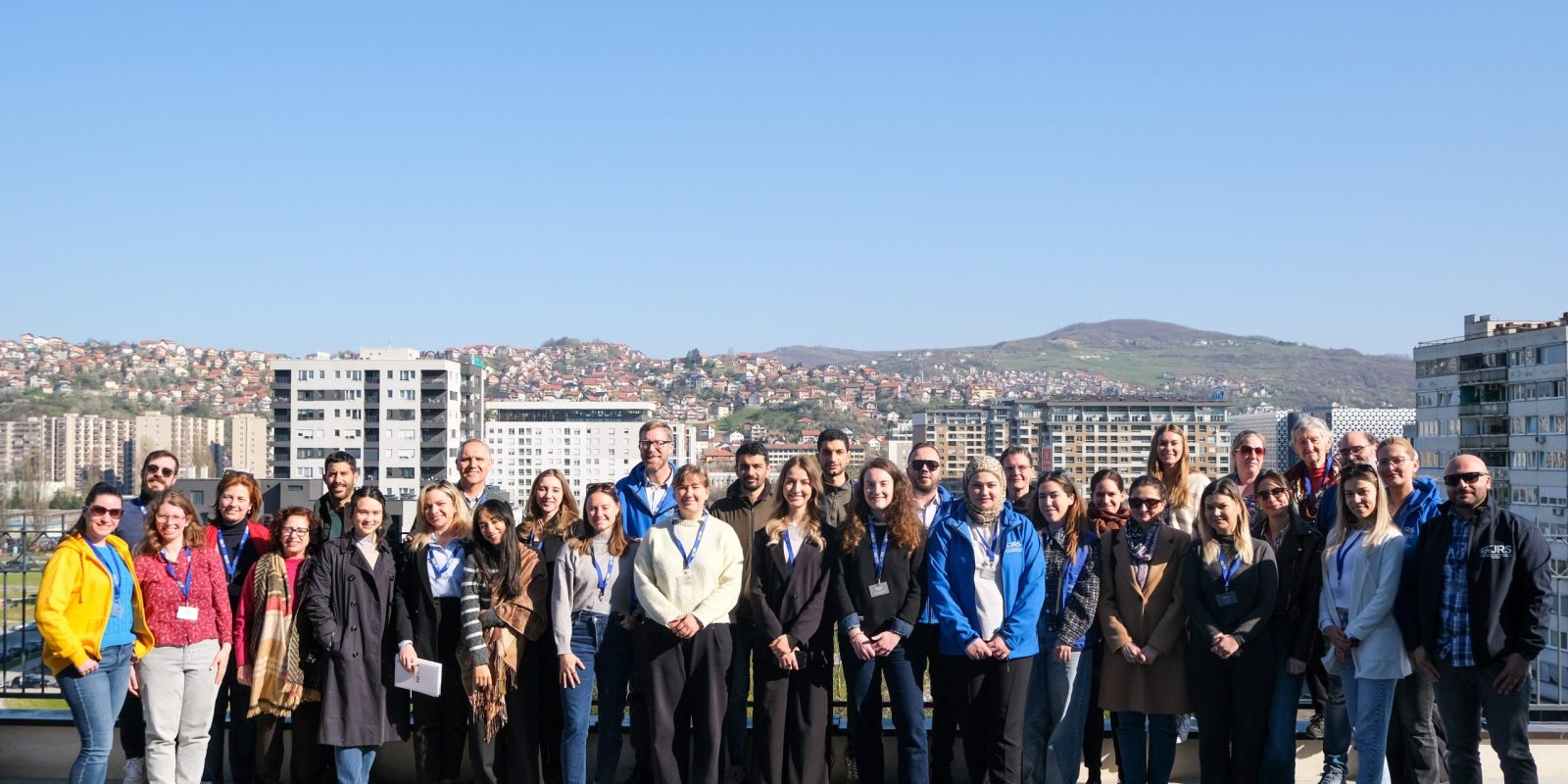Asylum in Europe: challenging times, unchanged New Year’s resolutions
15 December 2021

December is a time to look back at the year and make resolutions for the next. Looking back at 2021, it seems like time stood still. Negotiations on the New Pact on Migration and Asylum have barely advanced, as have the rights of the many men, women and children, forced to flee their countries and seek refuge in Europe.
Push-backs and deaths at the EU external borders are still a daily reality. People seeking protection are treated as security threats, now more than ever. In these challenging times, JRS’s resolutions for the new year remain unchanged: to serve and accompany forced migrants, to advocate for a welcoming Europe.
Freezing cold
When thinking about the current state of EU asylum and migration policies, the first image that comes to mind at the end of 2021 is that of the freezing cold landscape at the border between Poland, Lithuania and Latvia on the one side and Belarus on the other. Thousands of people have been stuck in this no-man’s land between the EU and Belarus for months, with no shelter, no help, no possibility to even ask for it. Several lost their lives.
Freezing cold has also been the EU response: rather than condemning push-backs and insisting for the people involved to be assisted, the EU was quick in labelling the facts as a security issue rather than a migration one. While it is true that the Lukashenko’s regime instrumentalised people in an attempt to destabilise the EU, the EU did no less by obstinately refusing to allow those men, women and children in and by watching them die in the cold. Belarus actions also clearly hit a soft spot: the EU went into emergency modus over just a few thousands of people.
Not much warmer was the response to the Taliban power seize in Afghanistan. European states, after the initial evacuation of their own citizens and Afghans who had worked for them, expressed more concern to avoid irregular movements of people from the region than for the well-being of those left behind under an oppressive regime.
The myth of the Pact
The European Commission’s reaction to all the migration-related challenges of the past year was always the same: if the proposed Pact on Migration and Asylum were adopted, all problems would be solved.
Unfortunately, there are many reasons to doubt this. The Pact as proposed is a repackaging of many problematic old recipes, including cooperation with Third Countries to prevent arrivals, mandatory border procedures and extensive detention possibilities.
Moreover, some of the problematic national practices that we see appearing at the national level, such as the use of ‘transit zones’ where people are not yet officially on EU territory or the use of automatic (de facto) detention in border procedures, are clearly inspired by the Pact proposals and give us some worrying previews of what the Pact might make a new normal.
In addition, the Pact also fails to provide a workable solution to ease the workload for EU Member States at the external border. If anything, all it does is to increase their workload. Unsurprisingly, EU Member States are no closer to reach a consensus on it now than they were a year ago when it was proposed.
Unchanged New Year’s resolution
In such challenging times, JRS’s mission remains more relevant than ever. Thanks to our presence on the ground, we know that we are not alone in believing that a change of course is possible and a welcoming Europe a desirable and achievable goal. Every day, thousands of people, professionals and volunteers, work tirelessly to serve, accompany and advocate for the right of forced migrants.
Together with them, also in 2022, JRS will continue to advocate for:
- The establishment of safe and legal pathways for refugees to seek protection in Europe.
- The guarantee of safe and dignified reception for asylum seekers and refugees
- Full implementation of the current European legislation on asylum.
- The end of detention as a tool for migration management and the establishment of community-based alternatives.
- The promotion of a narrative to encourage European citizens to keep an open mind in the encounter with people from different cultures and background so that such encounter can be mutually enriching and build stronger and inclusive communities.

